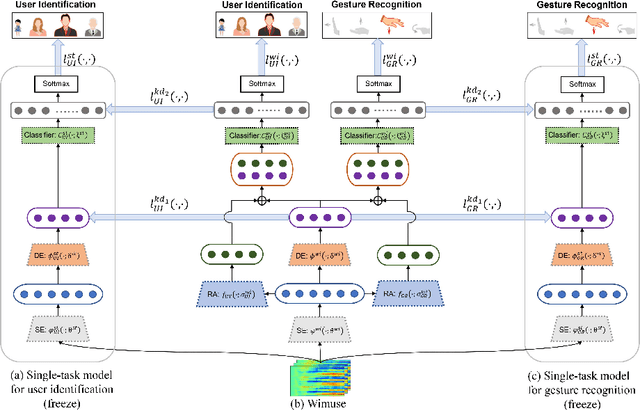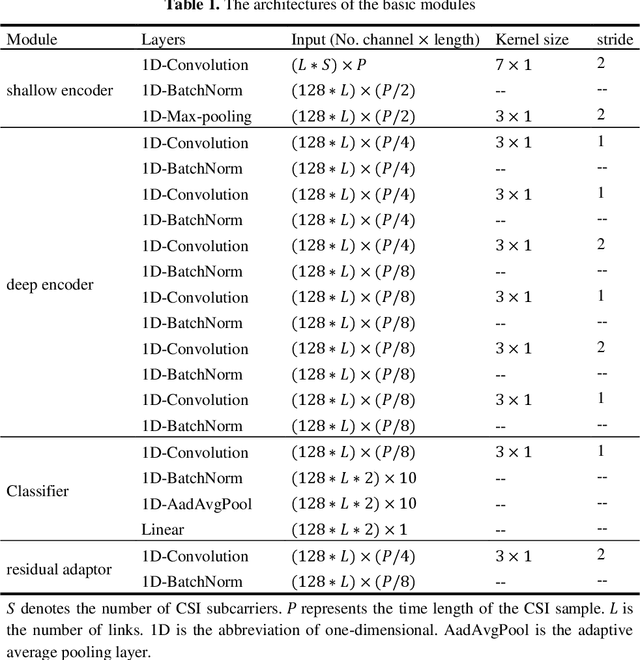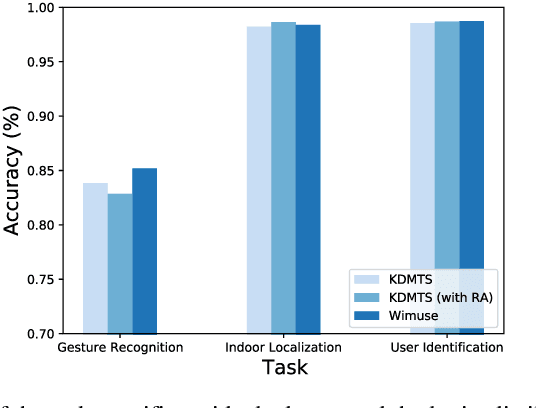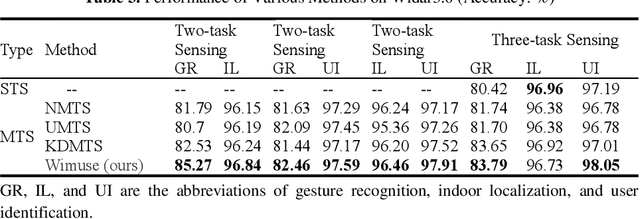WiFi-based Multi-task Sensing
Paper and Code
Nov 26, 2021



WiFi-based sensing has aroused immense attention over recent years. The rationale is that the signal fluctuations caused by humans carry the information of human behavior which can be extracted from the channel state information of WiFi. Still, the prior studies mainly focus on single-task sensing (STS), e.g., gesture recognition, indoor localization, user identification. Since the fluctuations caused by gestures are highly coupling with body features and the user's location, we propose a WiFi-based multi-task sensing model (Wimuse) to perform gesture recognition, indoor localization, and user identification tasks simultaneously. However, these tasks have different difficulty levels (i.e., imbalance issue) and need task-specific information (i.e., discrepancy issue). To address these issues, the knowledge distillation technique and task-specific residual adaptor are adopted in Wimuse. We first train the STS model for each task. Then, for solving the imbalance issue, the extracted common feature in Wimuse is encouraged to get close to the counterpart features of the STS models. Further, for each task, a task-specific residual adaptor is applied to extract the task-specific compensation feature which is fused with the common feature to address the discrepancy issue. We conduct comprehensive experiments on three public datasets and evaluation suggests that Wimuse achieves state-of-the-art performance with the average accuracy of 85.20%, 98.39%, and 98.725% on the joint task of gesture recognition, indoor localization, and user identification, respectively.
 Add to Chrome
Add to Chrome Add to Firefox
Add to Firefox Add to Edge
Add to Edge